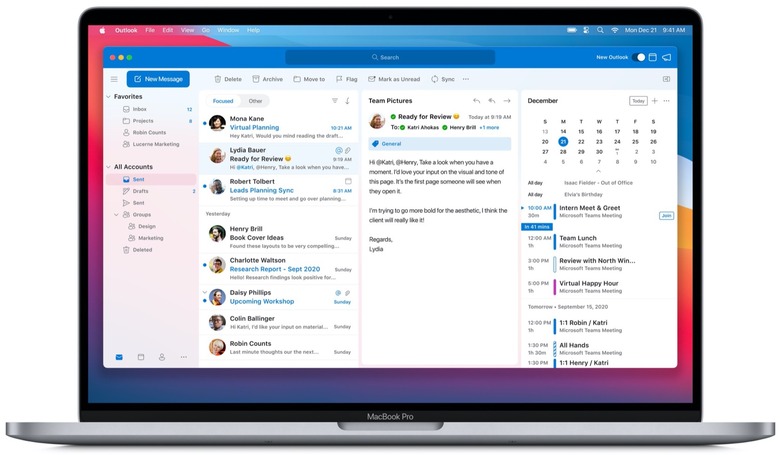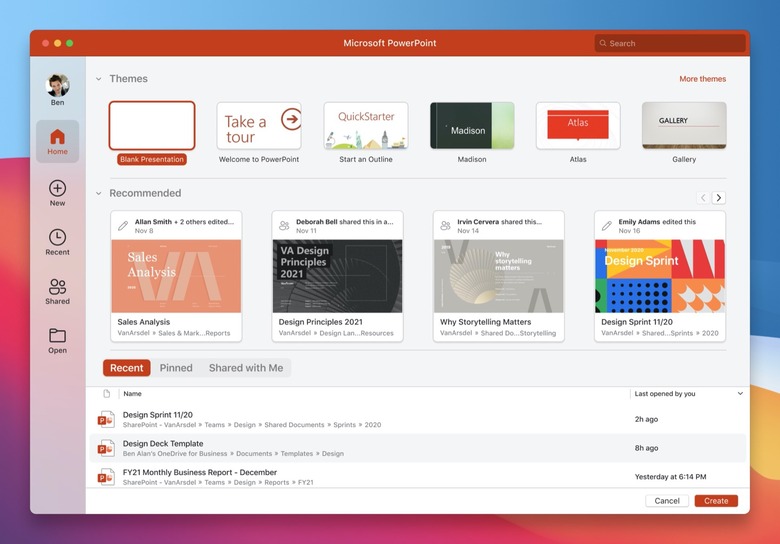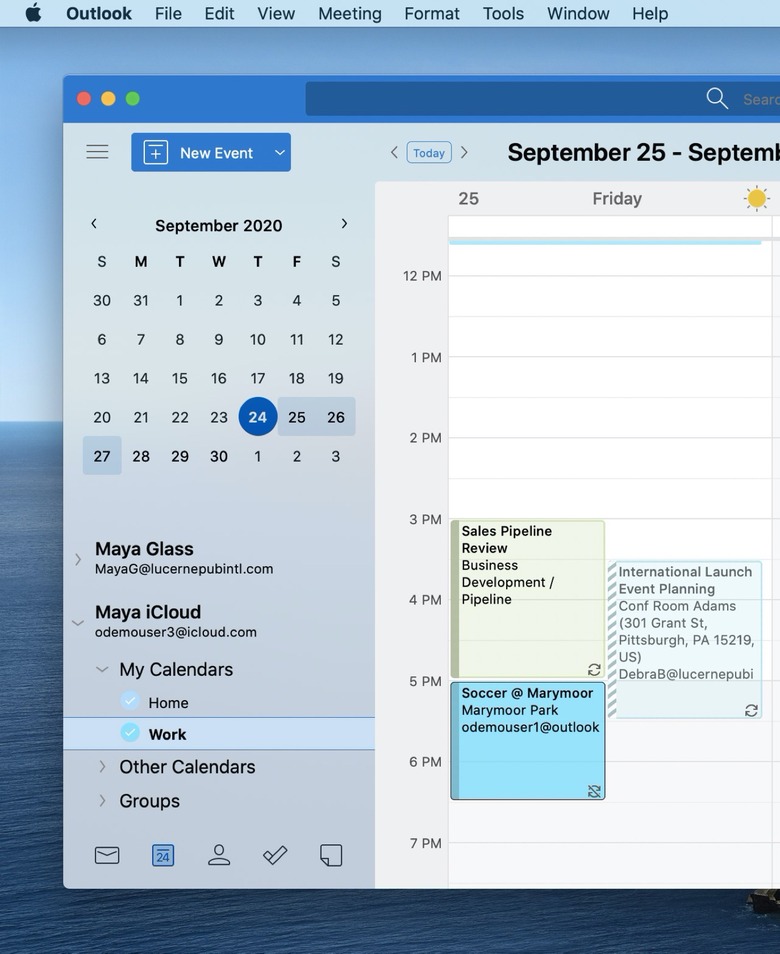Office 365 Now Supports Apple Silicon Natively - And That's Not All
Microsoft 365 for Mac has been updated with native support for Apple Silicon, with the core Office apps now running at their best on chipsets like the M1 in the newest MacBook Air, MacBook Pro, and Mac mini. The update, released today, also brings a redesign to Microsoft 365, bringing it in line with the rest of macOS Big Sur.
Office 365 has been running on Apple Silicon Macs already, of course, though that's been through emulation. Apple's Rosetta 2 allows third-party software not yet updated with support for its Arm-based chipsets to still run on Big Sur Macs, though not necessarily tap into their maximum performance – or, indeed, allow for the longest possible battery life.
Today, though, Outlook, Word, Excel, PowerPoint, and OneNote are all getting Apple M1-friendly universal updates. It means the same software will work on both Mac models using Intel processors, and those using Apple Silicon. Microsoft says that the update will be pushed out today automatically; or, you can head into the Mac App Store to trigger it manually, or do so via each Microsoft 365 app itself.

That's not to say Microsoft's work is over. The company is currently working on a version of Teams, its collaboration app, with native support for Apple Silicon. "Microsoft Teams is currently available in Rosetta emulation mode on Macs with M1 and the browser," Bill Doll, Senior Product Marketing Manager for Microsoft 365, confirms. "We are working on universal app support for M1 Macs and will share more news as our work progresses."

For those 365 apps updated, there's a new aesthetic to get to grips with too. That has been brought in line with what's familiar from Apple's own Big Sur software, including the new button styles.

It's part of a continuing redesign process, Doll says, that has seen Microsoft embrace both macOS elements while also sticking with its own Fluent UI interface principles. That includes an updated Office Start experience across Word, Excel, PowerPoint, and OneNote for Mac. Today, the new Outlook for Mac is also beginning to add support for iCloud accounts, spanning not only email but calendars and contacts. Users should see that rolling out over the coming weeks, Doll promises.
Come the first quarter of 2021, meanwhile, there'll also be shared calendars for those users subscribed to the Office Insider Mac Beta Channel.
